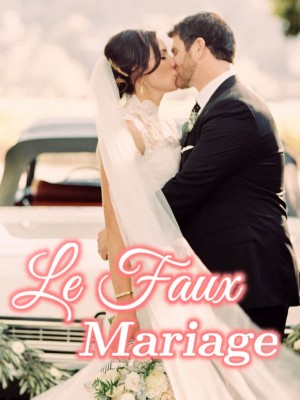The world was safely tucked in under blankets of snow. I navigated Battle Lake’s well—lit main street, pushing against the weather with hands shoved deep into fleece mittens and chin tucked into my neck. I could have driven the eight blocks from the library to the Fortune Café, but this was my favorite kind of snowfall—the flakes drifting down lazy and white like dandelion fluff. The outdoors felt cozy, the air scrubbed clean by ice crystal ions, all sound muffled in soft white snow.
Earlier today, Jack Bloom had mentioned that a January thaw was on its way. I believed that about as much as I bought into the covers of the pulp fiction books he checked out weekly. It was currently six below, not counting the windchill. The glittering Christmas garlands had been removed from the light posts just a week earlier.
Plus, this was Minnesota. If the thermometer topped zero in January, we referred to that as a “warm snap.” I didn’t expect to see above—freezing temps until March. That was fine by me. Winter was a magical season, if you had the heart and cojones for it.
I took another step, admiring how the snow dusted up like smoke. If you’d told me a year ago that I’d be living in Battle Lake, Minnesota, population 747 and dropping, spending an evening walking and admiring the weather, I’d have laughed in your face. But sometimes, life steers and all we can do is hang on. For my part—
“Are you writing a book in your head or just trying to hold in a fart?”
I glanced over at Mrs. Berns. I’d almost forgotten she was walking with me. As if. She was in her eighties, sharper than me on my best day, and my closest friend. She also possessed a wicked tongue, blended in nowhere, and courted trouble with the same single—minded focus she used to chase men.
“Because if it’s the latter,” she continued, “I suggest you let ’er rip. The only people stupid enough to step outside in this weather wouldn’t complain about the extra heat. That includes me, by the way. Remind me again why we’re walking?”
“It’s a gorgeous night.” I kicked up another puff of snow. “And you didn’t have to come with, you know.”
My plan for the evening had been to close up the library and grab a bowl of Sid’s famous firehouse chili and an olive cream cheese–slathered bagel to go. I could visit with Nancy while Sid readied my order, then shuffle back to the library to grab my car and head on home to enjoy a quiet dinner with my cat, dog, and TV. I normally enjoyed cooking, but the library had gotten so busy today that I’d had to skip lunch and work well past normal closing hours. My stomach was burbling like a tar pit.
When Mrs. Berns, who was also my assistant at the library, heard of my evening plans, she suggested we head to the Fortune Café together. She loved Sid’s homemade bagels almost as much as I did. They were chewy on the outside, soft on the inside, and the perfect vehicle for cream cheese salted with thick olive slices.
Turns out the food was only one of the unexpected rewards of moving to Battle Lake, the teeny—tiny town I’d relocated to last April. Previously I’d been living in Minneapolis, a grad—school English major dropout paying the bills with tips from my waitressing gig at a Vietnamese restaurant on the West Bank. My boyfriend at the time was a bass player who turned out to be a little too free with his “music.” On top of all that, I was regularly drinking too much.
On that fateful day when Sunny asked me to house—sit for her in Battle Lake, I’d gotten flashed by a vagrant whose business looked like a sad little green bean that had sat in the microwave for too long.
Voilà. The scales tipped.
What was supposed to be a few months of house—sitting had grown into an open—ended appointment. Despite having lived in Battle Lake for nearly a year, however, I was and always would be “not from around here.” Plus, I’d developed a distasteful habit of discovering one corpse a month since May. A lesser woman would think herself cursed. I’d been raised by a codependent mother eligible for sainthood and an alcoholic father who’d killed himself and the occupants of an oncoming car in a drunk—driving accident when I was a sophomore in high school, and so I had a different perspective on life. I was, of all things, an optimist, though one who was always waiting for the other shoe to drop.
The inaugural dead body appeared about the time I landed my first job in town. Both the job and the corpse were located at the Battle Lake Public Library. When the head librarian disappeared shortly after the murder, I’d been promoted to fill in for him until someone qualified could be found; a budget cut plus the fact that I kept “losing” applications kept that possibility at bay.
The most recent carcass had nearly been mine. Three weeks ago, an honest—to—goodness serial killer—nicknamed the Candy Cane Killer by the press—had hunted me like an animal, stalking close enough to leave scars that I’d carry for the rest of my life. I hadn’t slept a full night since, though I refused to reveal that when anyone asked how I was.
Admitting it out loud would make it too real. Besides, to whom could I confess that I’d started sleeping under my bed instead of on it—that every evening before I drifted off for an hour or two, my nose inches from the box springs, I wondered if I’d witnessed too much to ever feel safe again?
And so I kept my mental state to myself. I worked, I laughed, I played, and I watched the shadows.
On a positive note, I’d discovered more about myself since moving to Battle Lake than I could have imagined. My drinking was mostly in check, I had begun to repair my relationship with my mom and make peace with the memory of my dad, I was pursuing my PI license based on the belief that the Universe was telling me it was that or become a mortician, and I’d even fallen in love with a guy who walked upright. His name was Johnny Leeson, and he was a horticulturist and lead singer for a local band.
If Johnny was food, he’d be chocolate. And if he was drink, he’d be a rare red wine. I still didn’t entirely trust that somebody as amazing as him was all mine, but I was willing to work on it. We’d been dating exclusively, more or less, for a few months. And over Christmas, the file I’d started on Johnny had finally gotten indexed, if you know what I mean. It was everything I’d imagined, except for the location: my childhood bedroom.
He’d been busy since then starting the spring seedlings at the local nursery and playing gigs all over the Midwest with The Thumbs. Subsequently, we hadn’t gotten to repeat the glory we’d first discovered under the Jimmy Page and Leif Garrett posters my mom still kept up in my room, though we did have a date planned for tomorrow night.
“You’re thinking about Johnny now, aren’t you?” Mrs. Berns said, interrupting my thoughts for the second time. “You better not take up poker. You’re easier to read then a comic strip. With large print.”
I realized I’d been smiling as I walked through the fairy snow, and that made me beam even wider. “He’s pretty cute, isn’t he?”
“You could do worse.”
The occasional car burred past us as we briskly covered the eight blocks, but it was almost seven at night and all the businesses except for the Apothecary and the Rusty Nail were closed in accordance with their winter hours. Theadora, manager of the Apothecary, glanced up from rearranging her Valentine’s Day window display as Mrs. Berns and I strolled past. She waved, and we returned the gesture before crossing the street. We’d nearly reached the end of the block, encased again in our own thoughts and body heat, when I heard what sounded like a child crying.
I stopped and cocked my ear. When the snowflakes grew this big, they sometimes warped sound.
“Hear that?” I asked.
Mrs. Berns kept walking toward the intersection. “My feet crying out from the cold? My stomach growling from starvation? Yep and yep.”
“No, it’s definitely something.” I pointed at the alley entrance between the post office and an abandoned building that used to house a movie rental store. “From down there. I can’t tell if it’s a person or an animal.”
Mrs. Berns returned to my side to listen with me.
The plaintive cry repeated itself, high and whining, at a pitch that thrummed a deeply instinctual fear chord. The six below temperature suddenly felt ominous, and my blood turned sluggish. The leering face of the Candy Cane Killer returned to me, unbidden: banal, deadly. Familiar. I forced myself to breathe regularly, repeating like a mantra the fact that the police station was only two blocks away.
“Should we run for help?” I asked. I was grateful that my voice worked.
“Excellent idea,” Mrs. Berns said. “Nothing Chief Wohnt would prefer to do tonight than check on a rabbit stuck in a snowy alley. Unless you broke a nail? Because he’d want to hear about that as well.”
I realized I’d been holding my breath. I released it in a sharp gush. Mrs. Berns was right. The Candy Cane Killer was in a maximum—security prison in Chicago. No way could the murderer get me. There was nothing horrible down that alley. It was only a hurt animal. And I’d feel like an ass if I called out the guards for a rabbit, not to mention Chief Gary Wohnt and I didn’t have the best relationship.
Ultimately, though, what spurred me to check on the sound was this: I was tired of being so afraid. I’d been wearing it like a shock collar since the Killer put me in the hospital, and I could already feel the conditioning settle in. Don’t take chances. Stay in your routine. Don’t step out of line, and you won’t bring any more bad on yourself.
I glanced around. Theadora was still busy in the Apothecary display window down the block and across the street, though she looked far away and pieced—up through the falling snow. The Fortune Café was three blocks ahead, the streets mostly well—lit. A rusty Ford pickup with a snowplow wedge mounted on the front drove past, the snow muffling the engine’s rattle. The driver honked a greeting at Mrs. Berns and me. I held up a hand. He kept driving.
I sighed. It was now or never: confront my fear or forever wear the yoke. If the boogey man was down the alley, I could yell and Mrs. Berns would have someone here in two minutes. If it was an injured animal, I could carry it back to my car and drive it to the emergency vet. If it was a scared child, or worse, an injured one, I was a monster for even debating this long.
“I’m going in,” I said. “You wait here.”
I held my hands loose at my sides like I’d learned in a recent self—defense class and strode resolutely down the alley.
Right into the devil’s mouth.








